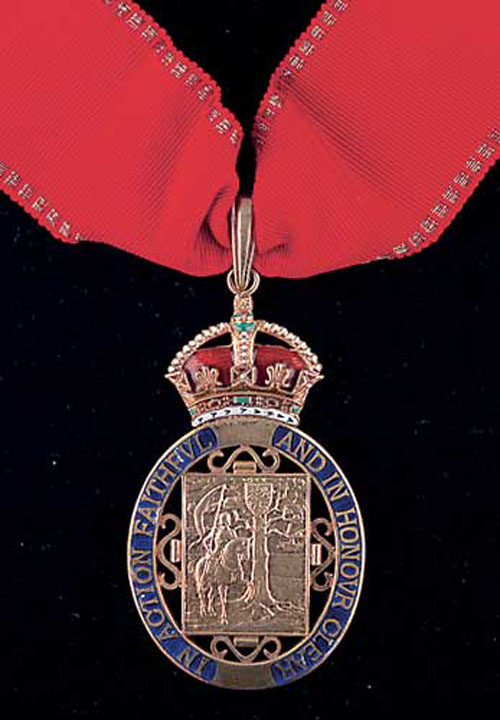
Auction: 6025 - Orders, Decorations, Campaign Medals & Militaria
Lot: 100
Sir Karl Raimund Popper, C.H., was born on 28th July 1902 at Himmelhof, Vienna, the son of Dr. Simon Popper, an Austrian barrister of Jewish descent. His intellectual life spanned more than 75 years, with little interruption. He made outstanding (in some cases revolutionary) advances in the philosophy of science, social and political philosophy, and the history of philosophy among others. Sir Peter Medawar, a winner of the Nobel Prize for Medicine, said of him in 1972: ´I think Popper is incomparably the greatest philosopher of science that has ever been.´ Popper spent his formative years in Vienna, where his family passed onto him his twin interests in life: a deep interest in philosophy, and a love of music. Still very young, and before entering university, he encountered the political theories of Marx, the psychoanalytical theories of Freud and Adler, and later listened entranced to a lecture given by Einstein on relative theory. It was Einstein´s views that resonated with him most: the critical attitude that ´did not look for verifications, but for crucial tests; tests which could refute the theory tested, though they could never establish it.´ Whilst teaching mathematics and physical science at a secondary school in Vienna, he completed and published his first major work, The Logic of Scientific Discovery (1934), conceived as a discussion and correction of the doctrines of the Vienna Circle, the informal group of the city´s leading philosophers. The book was a success, and gained him an invitation in 1935 to lecture in England. He described his stay as ´a revelation and an inspiration. The honesty and decency of the people and their strong feeling of political responsibility made the greatest possible impression on me.´ Because of his Jewish descent, and the political climate in Austria at the time, Popper had to leave his native land, and with his wife left Vienna early in 1937 for Christchurch, New Zealand, where he had been offered a lectureship in philosophy at Canterbury University College. He spent the war years writing his two-volume masterpiece, The Open Society and Its Enemies, published in 1945. It proved him to be the most formidable and effective critic of totalitarianism, demolishing Marxism in particular, and establishing his international reputation. It also gained him a call to the London School of Economics where he took up his new post early in 1946. He was knighted in 1965, and retired from academic life in 1969, but continued to publish books and articles, and give lectures all over the world. He was awarded many academic honours and prizes, including in 1992 the Kyoto Prize, Japan´s most prestigious academic award, and in 1971 was made a Fellow of the Royal Society. In 1982 was made a Companion of Honour. Sir Karl Popper died on the 17th September 1994. After his death Bryan Magee wrote: ´No other thinker of the twentieth century comes anywhere near matching [Popper´s] range of effectiveness as a destroyer of the dominant myths of the age, and this alone is likely to make Popper a figure of historical importance. But in each case he put forward an alternative to the thought system he attacked- in politics, in logic, in philosophy of language, in psychology, in science, in every one of the fields in which he was active. To the end of his life he was astonishingly fertile in new ideas.´ As this catalogue was going to press Sir Karl´s work was translated into its 46th language, Guajarati. Great Britain, The Order of the Companions of Honour, E.II.R., Member´s neck Badge, 68mm including crown suspension x 40mm, silver-gilt and enamel, extremely fine, in Pinches, London, case of issue, together with The Imperial Society of Knights Bachelor, Certificate of Membership, named to Sir Karl Popper and dated 2.3.1965, in leather scroll holder (2) Estimate £ 1,400-1,800C.H. London Gazette 12.6.1982 Professor Sir Karl Raimund Popper. ´For services to philosophy.´
Sold for
£2,300




